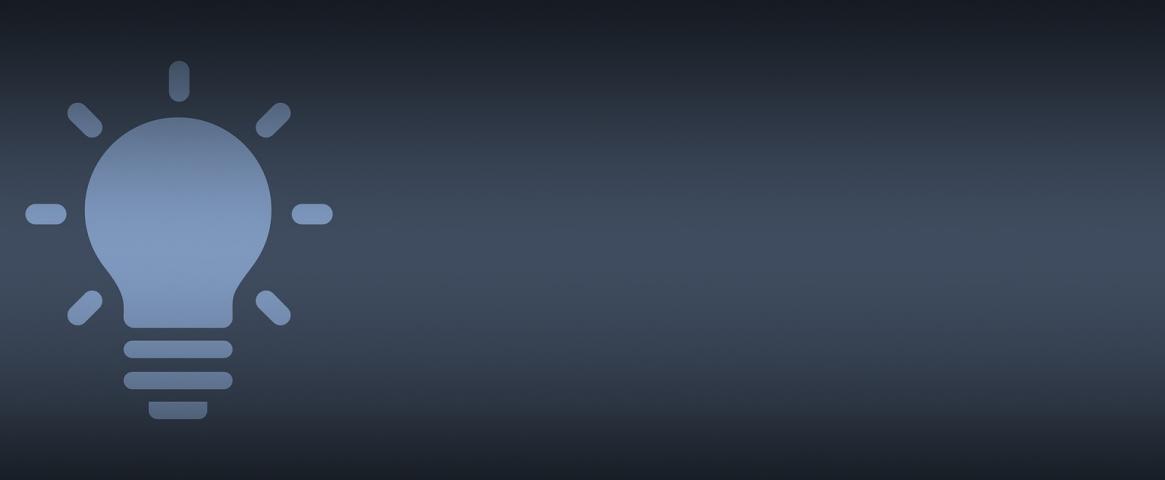Five projects aimed at fostering diversity in science writing and helping science writers navigate complex data on the pandemic were selected to receive Peggy Girshman Idea Grants.
Each year, the Grants Committee funds diverse and consciously broad proposals that support science writers, editors and communicators in a variety of meaningful ways. This year, the Committee prioritized projects that increased awareness and discussions around the pandemic and/or systemic racism. Out of 14 proposals, the Committee granted a total of $15,000 to five groups or individuals, using funds from NASW’s Authors Coalition of America distributions.
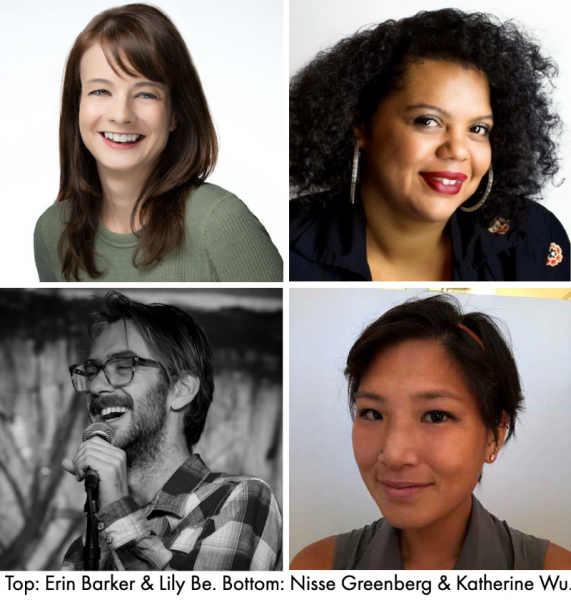 Nisse Greenberg, Erin Barker, Lily Be and Katherine Wu will receive $7,200 to develop the Story Collider Black, Indigenous and People of Color (BIPOC) Accessibility Scholarship.
Nisse Greenberg, Erin Barker, Lily Be and Katherine Wu will receive $7,200 to develop the Story Collider Black, Indigenous and People of Color (BIPOC) Accessibility Scholarship.
The Story Collider currently offers two-week online storytelling classes for scientists and science writers, with the goal of empowering participants to tell true, personal stories of science that engage and reveal the human experience behind scientific work. Funds from the grant will be used to expand a scholarship opportunity specifically for early-career BIPOC science writers, allowing recipients to join their online workshop series each month at no cost. Greenberg, who is Deputy Director of the Story Collider, wrote that with this scholarship program, he and his co-applicants hope to foster a form of collective mentorship, and to develop a safe space where BIPOC science writers can “share their full selves” and feel supported in their long-term career ambitions.
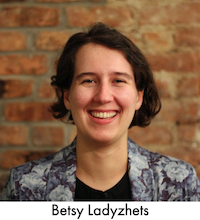 Betsy Ladyzhets, a Senior Research Associate at Stacker Media and freelance writer and data journalist, will receive $2,800 to develop a COVID-19 Data Workshop Series.
Betsy Ladyzhets, a Senior Research Associate at Stacker Media and freelance writer and data journalist, will receive $2,800 to develop a COVID-19 Data Workshop Series.
The series, which will be produced in association with her newsletter the COVID-19 Data Dispatch, will involve interactive workshops and presentations to provide attendees with specific resources for tackling the intricacies and challenges of COVID-19 data reporting. Questions around vaccine data, including both clinical trial results and immunization data, also will be incorporated into the sessions. Potential speakers will include data journalists and healthcare experts. Highlights from these presentations will be made public through her newsletter and on NASW.org.
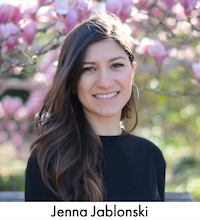 Writer and editor Jenna Jablonski will receive $2,500 for her project, “Expanding Sister as a Low-Barrier Publishing Platform for Women and Non-Binary Science Writers.”
Writer and editor Jenna Jablonski will receive $2,500 for her project, “Expanding Sister as a Low-Barrier Publishing Platform for Women and Non-Binary Science Writers.”
Jablonski is founder of Sister STEM LLC (Sister), an independent, online media platform that aims to amplify the voices of gender minorities in STEM fields. Jablonski will use funds from the grant to support and pay writers who will contribute articles that open a conversation on systemic racism in the context of the pandemic. Jablonski plans to provide hands-on editorial support to help new science writers craft essays and opinion pieces that illuminate science and the lived experiences of minorities in STEM fields.
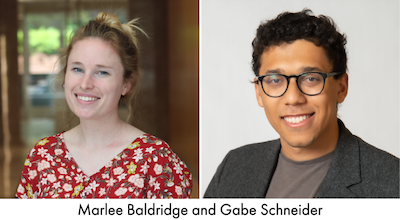 Journalists Marlee Baldridge and Gabe Schneider of The Objective, an all-volunteer collective that focuses on how journalism has misrepresented or excluded specific communities in coverage, as well as how newsrooms have treated staff from those communities, will receive $2,000 to develop “The Objective Reporting Series.”
Journalists Marlee Baldridge and Gabe Schneider of The Objective, an all-volunteer collective that focuses on how journalism has misrepresented or excluded specific communities in coverage, as well as how newsrooms have treated staff from those communities, will receive $2,000 to develop “The Objective Reporting Series.”
Funding from the grant will go directly to writers to develop long-form commentary about how the routines of science journalism have historically failed marginalized communities and how the notion of “objectivity,” particularly in science, affects reporting on historically underserved communities. Baldridge and Schneider wrote that they hope that the critiques will influence how science writers view their work and tell stories for the better. These pieces will be published on The Objective and may also be republished in other outlets and on NASW.org.
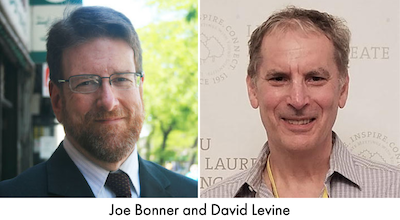 Science communicator Joe Bonner and his co-applicant, science writer and editor David Levine, of Science Writers in New York (SWINY) will receive $500 for “Equipment to Improve Production Value of Zoom Webinars.”
Science communicator Joe Bonner and his co-applicant, science writer and editor David Levine, of Science Writers in New York (SWINY) will receive $500 for “Equipment to Improve Production Value of Zoom Webinars.”
Since March 2020, members of SWINY, a regional group of science writers in New York City, have been producing weekly hour-long webinars with scientists and science journalists about COVID-19. The Zoom webinars, held almost every week, provide science writers with the opportunity to listen to leaders in their fields and to submit questions in advance or during the webinar. Funds from the grant will be used to upgrade video, lighting, and audio to improve the production values of the Zoom webinars with science writers and scientists. All videos will be archived on the ScienceWriters NYC YouTube channel.
NASW’s Idea Grant program is named in honor of the late Peggy Girshman, who passed away in 2016. Girshman, a founding member of the Grants Committee, was a longtime mentor and advocate for science writers. Her distinguished career included positions at several media organizations, including NPR, several broadcast organizations, and Kaiser Health News, which she helped co-found.
Since 2010, the National Association of Science Writers has funded projects totaling more than $475,000 to benefit science writers and communicators. Applications for grants, which generally range from $1,000 to $15,000, typically open in October of each year. In response to need in the field generated by the tumultuous events of 2020, an additional round may be offered in early 2021. For more information visit, nasw.org/awards/ideagrants.
Hero image from Pixabay.
